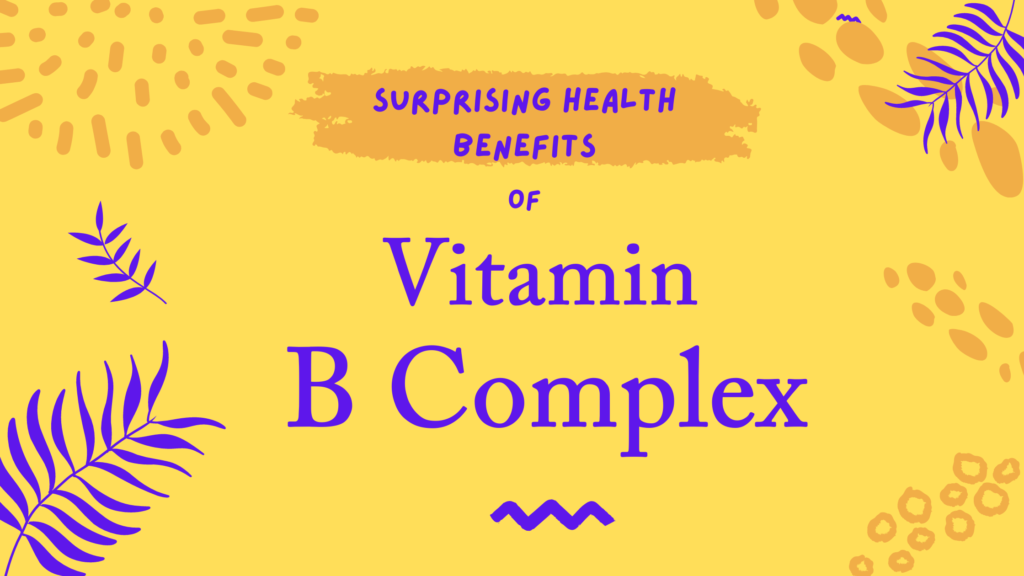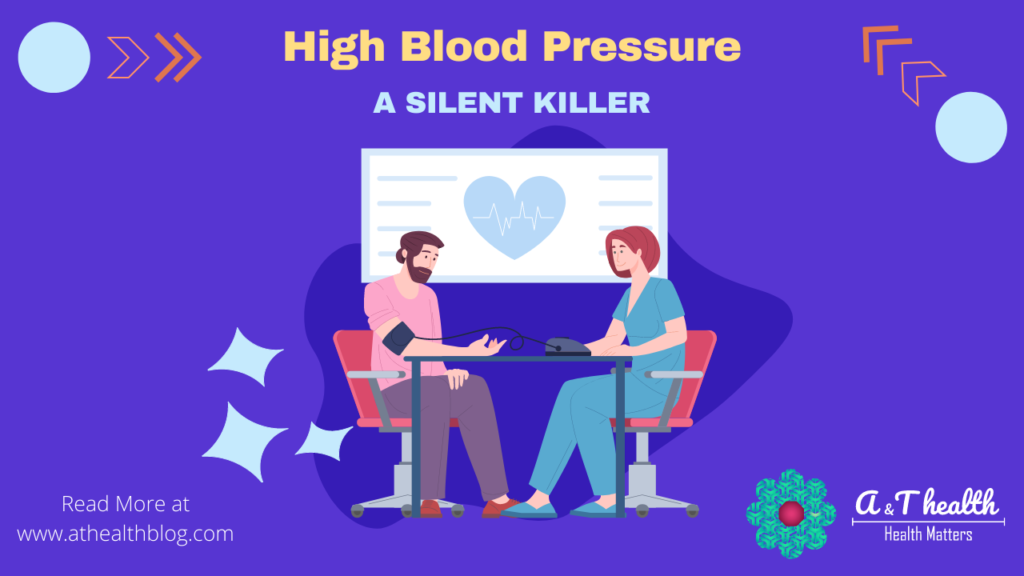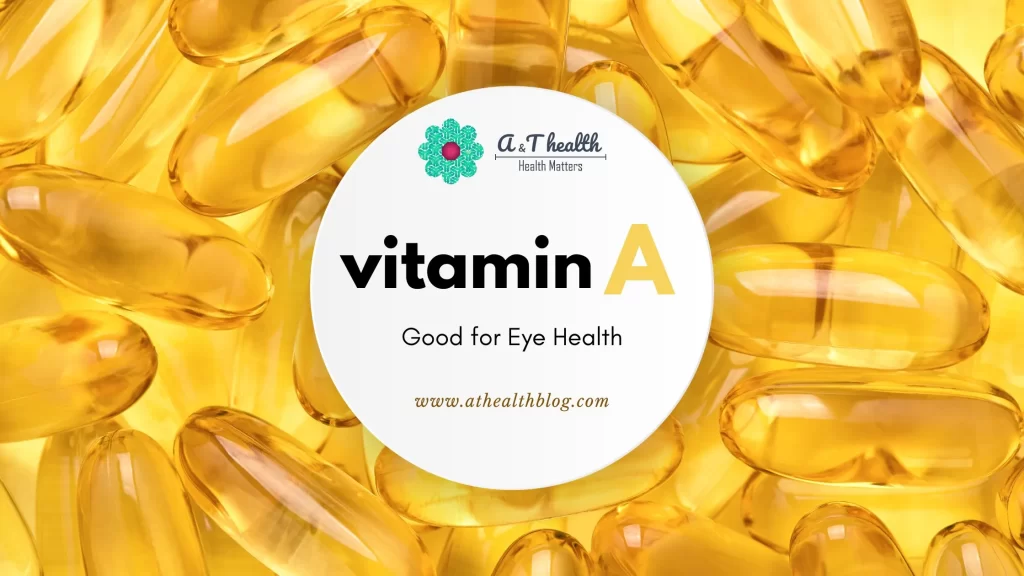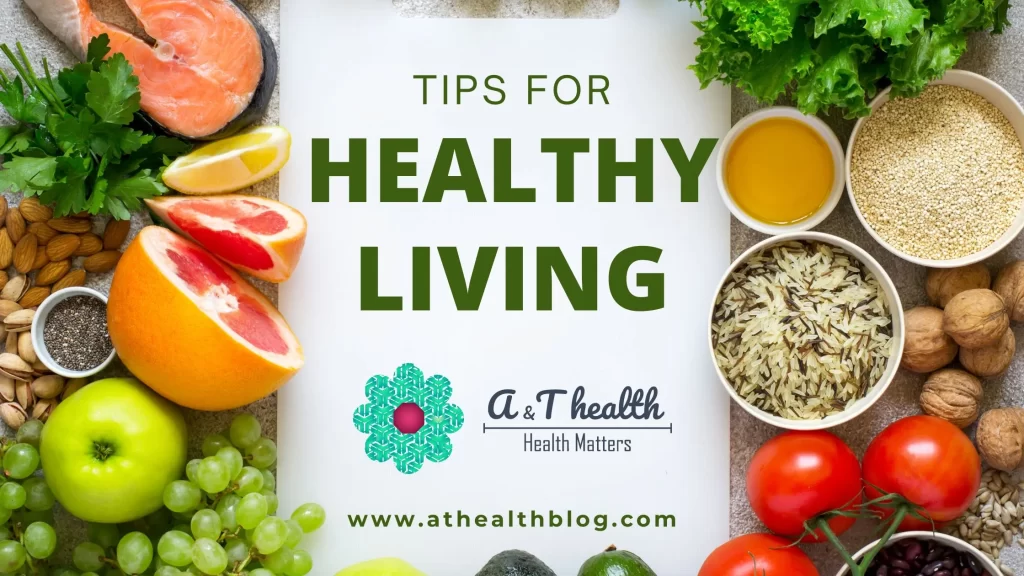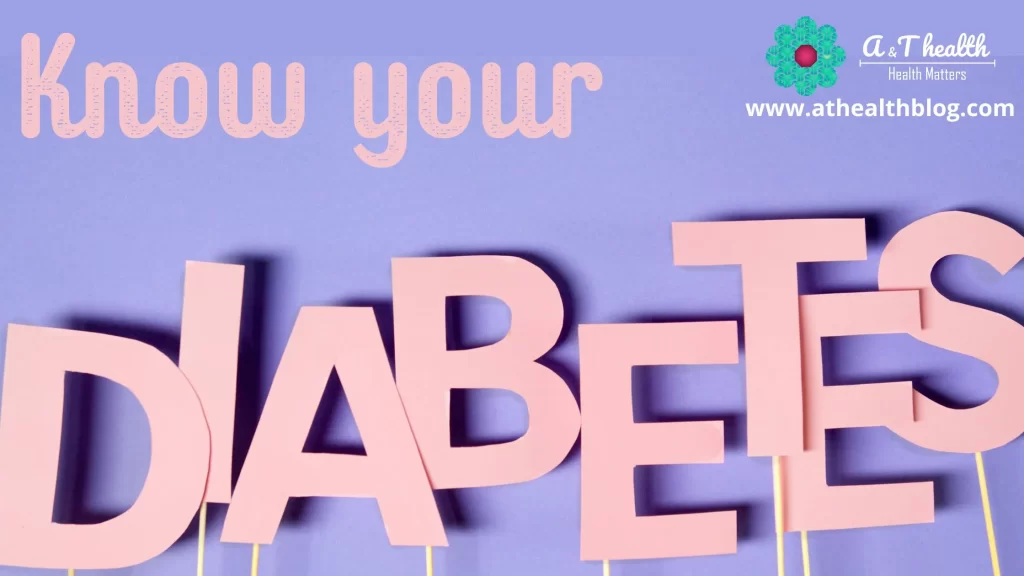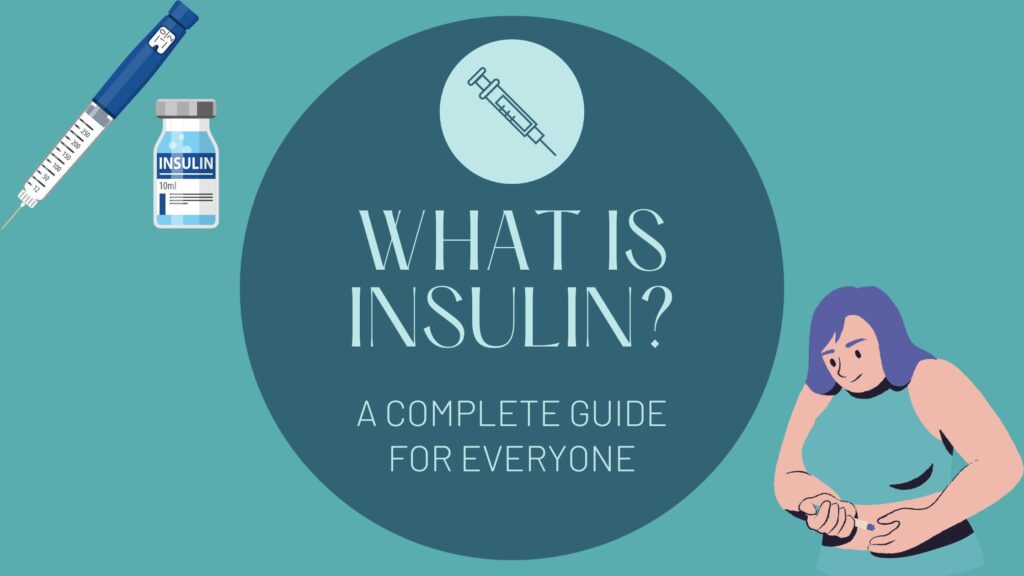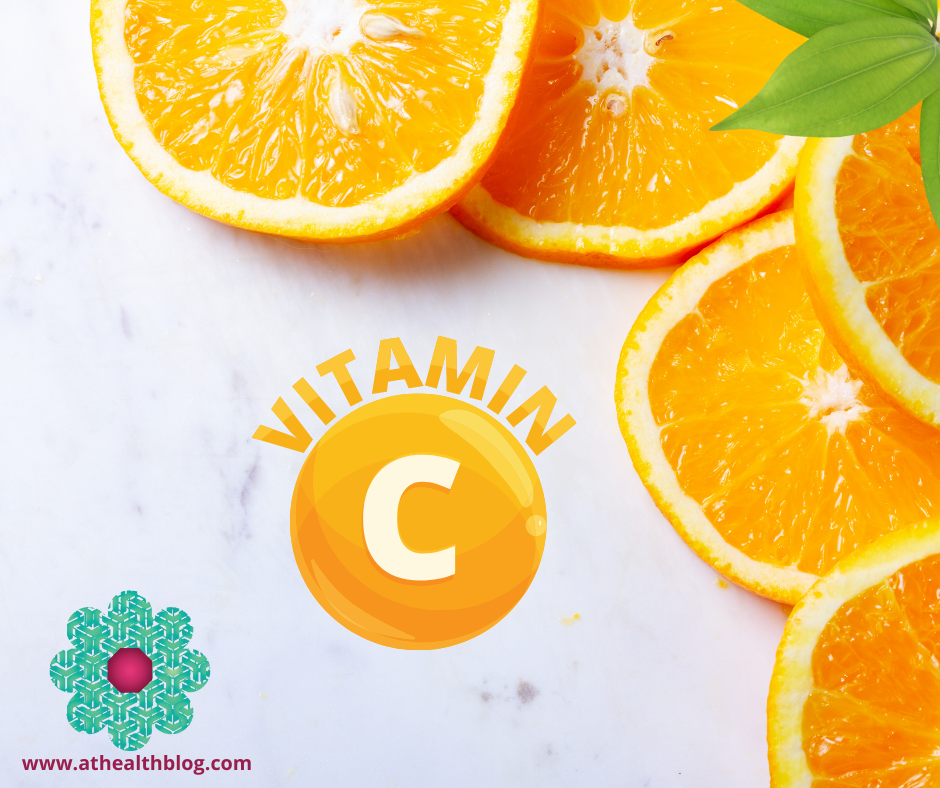What is the vitamin B complex?
Like all other vitamins, the vitamin B complex is an essential vitamin that the body cannot synthesize.
Vitamin B complex can only be taken from an outside source as it is a water-soluble vitamin needed for the body’s proper functioning.
The vitamin B complex is essential for our proper body function because it helps us grow and develop cells.
- Vitamin B complex is good for contributing to the normal function of the nervous system and normal energy-yielding metabolism.
- Vitamin B complex is good for regulating normal psychological function and reducing fatigue and tiredness.
- Vitamin B6 in the Vitamin B complex is good for regulating hormonal activity.
- Pantothenic acid in vitamin B complex is good for enhanced mental performance
Vitamin B Complex List:
The vitamin b complex consists of eight different vitamins:
- Vitamin B1 or Thiamin
- Vitamin B2 or Riboflavin
- Vitamin B3 or Niacin
- Vitamin B5 or Pantothenic acid
- Vitamin B6 or Pyridoxine
- Vitamin B12
- Folate
- Biotin
In detail and individualized uses of all vitamin B are discussed below.
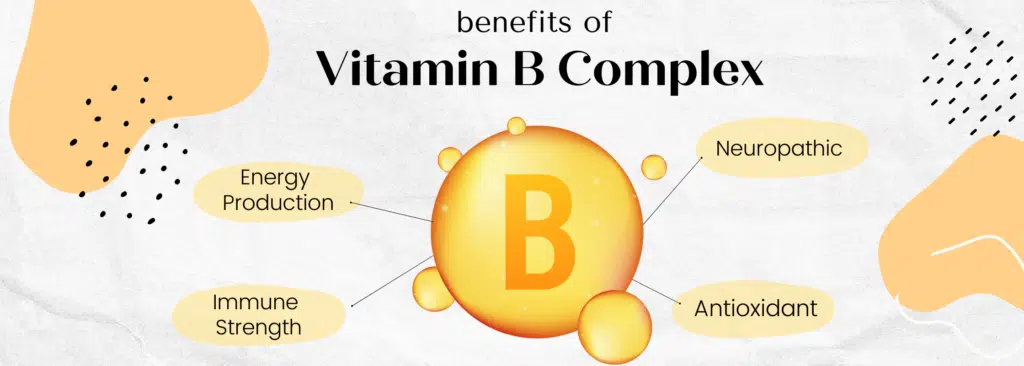
Uses of Vitamin B Complex
Each Vitamin B type in the B complex category has its importance and unique functions inside our body.
Vitamin B1 or Thiamin:
The deficiency of Vitamin B1 is the cause of Beriberi disease. It is also known as neurotropic vitamin among the Vitamin B complex family.
It is vital as;
- It helps in the metabolism of carbohydrates and amino acids
- Necessary for normal functioning of the Central Nervous System.
- Converts fatty acids into steroids
- Essential for normal growth and skin integrity
- Exhibits antioxidant properties
Vitamin B2 or Riboflavin:
Vitamin B2 or Riboflavin, also called Vitamin G, is water-soluble as other Vitamin B complex families. It is used for;
- Normal Tissue respiration
- Metabolism of Fatty acids
- Riboflavin is required for Vitamin B6 activation and the conversion of tryptophan to niacin.
- Suitable for treatment of Acne
- Use in burning foot syndrome
- Migraine headaches
- Muscle cramps
- Strengthen the immune system
- Combination with vitamin B6 is used in the treatment of carpal tunnel syndrome.
- As a supplement in the treatment of depression and anxiety.
Vitamin B3 or Niacin:
It is essential for the Manufacturing of hormones like;
- Cortisone
- Thyroxine
- Insulin
- Estrogen
- Progesterone
- Testosterone
- Also necessary for the appropriate functioning of the central nervous system
Vitamin B5 or Pantothenic acid:
It is necessary for
- Synthesis of Vitamin D
- Synthesis of Steroids
- Synthesis of Red blood cells
- Synthesis of Bile
- Synthesis of Neurotransmitter like acetylcholine
- Vitamin B5 acts as a catalyst in various body functions of Vitamin B2, Vitamin B6, Vitamin B1, and Niacin
- Vitamin B5 breaks down fats, proteins, and carbohydrates to produce energy.
Vitamin B6 or Pyridoxine:
It is one of the most important in the B complex family. It is involved in more than 60 enzymatic reactions, which affect the synthesis of Amino acids and essential fatty acids.
- Helps in the growth and maintenance of all body functions
- Converts amino acids to fats which are used as an energy source in several body functions
- Essential for the release of sugar from the liver
- Essential in the conversion of tryptophan to niacin
Pyridoxine also helps in the synthesis of
- Hormones
- Red blood cell protein hemoglobin
- Nervous system maintenance
- Synthesize neurotransmitters that control blood pressure, heart, and muscle contractions.
Vitamin B9 or Folate:
Also known as vitamin B9. It represents a group of different forms of Vitamin B9, which are;
- Folic acid
- Dihydrofolate (DHF)
- Tetrahydrofolate (THF)
- 5, 10-methylenetetrahydrofolate (5, 10-MTHF)
- 5-methyltetrahydrofolate (5-MTHF)
Benefits are:
- Treatment of Anemia
- The likelihood of a fetus developing neural tube abnormalities such as spina bifida and anencephaly is significantly lowered when folic acid is taken during pregnancy.
Vitamin B12 :
It is essential to the growth and repair of the cells inside the body. It consists of three cobalt-containing compounds: cobalamin, cyanocobalamin, and hydroxocobalamin.
In addition to growth-related properties, Vitamin B12 is responsible for;
- Formation of mature Red Blood Cells
- DNA synthesis inside cells
- Synthesis of essential Amino Acids like methionine
Biotin:
- Helps in lowering Triglycerides
- It’s used to treat renal failure-related peripheral neuropathy
- It could aid in diabetes treatment by increasing insulin sensitivity and glucose metabolism
- Healthy Hair and Nails treatment

Food sources of Vitamin B Complex
Vitamin B Complex should be an essential part of everyone’s daily nutrient intake. Vitamin B Complex is necessary regardless if you’re vegan or not.
You can get your daily intake naturally by consuming various foods.
Sources of Vitamin B complex are
- Miso from fermented Soybeans (Vitamin B 12)
- Eggs
- Potatoes
- Salt Water Fish
- Beef
- Milk
- Whole Wheat
- Fresh Vegetables
- Royal jelly of Bees
- Ovary of Tuna and Cod
- Chicken
- Kidney
- Liver
- Peanuts
- Walnuts
Conclusion:
If you want to stay healthy, taking a B complex supplement is good. Ongoing vitamin deficiency can cause serious harm, even when you don’t notice it.
It’s an easy, cost-effective way to support your body’s natural defenses, which might make all the difference in the long run.
The main point is that you should try the Vitamin B complex to take control of your health.
